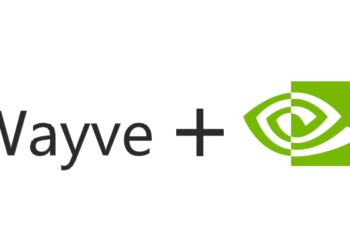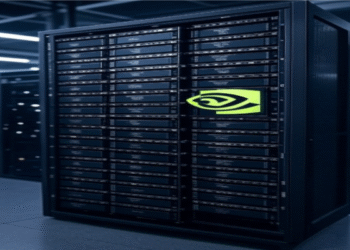Spatial computing, which refers to the merging of the physical and digital worlds to create immersive and interactive experiences, has significant impacts on the job market. This technology encompasses virtual reality (VR), augmented reality (AR), mixed reality (MR), and 3D mapping, enabling users to visualize and interact with digital content in real-world environments. Spatial computing, also known as mixed reality or XR (Extended Reality), is rapidly emerging and transforming the way we interact with digital information and our physical surroundings. As spatial computing advances, it not only revolutionizes industries but also creates new opportunities and impacts the job market in significant ways. This article explores the various ways spatial computing influences the job market, including the emergence of new roles, changes in existing job requirements, and the overall growth potential in this field.
The Emergence of New Roles
The rise of spatial computing has given birth to a plethora of new job roles. Companies now seek professionals skilled in designing and developing AR and VR applications to meet the need for immersive experiences. Prominent roles in this field include XR developers, spatial designers, and 3D artists. XR developers are responsible for creating interactive and engaging experiences by utilizing spatial computing technologies to build applications for industries ranging from gaming to healthcare. Spatial designers craft intuitive and user-friendly interfaces, ensuring seamless interactions between users and digital content. Meanwhile, 3D artists create immersive environments and visually stunning elements for AR and VR experiences.
Changes in Existing Job Requirements
Spatial computing has also brought about changes in existing job requirements across various industries. For instance, architects and engineers now need to be familiar with spatial computing tools to create virtual prototypes and conduct immersive design reviews. Retailers are hiring experts in augmented reality to develop virtual showrooms, allowing customers to virtually try products before making purchases. Medical professionals are incorporating spatial computing into surgery simulations and patient education, requiring them to possess digital skills alongside medical knowledge.
Furthermore, spatial computing is impacting the job market by introducing new requirements for data analysis and management. As spatial technologies generate vast amounts of data, the demand for professionals who can collect, analyze, and interpret spatial data has grown. Geospatial analysts and data scientists are in high demand as they possess the expertise to extract valuable insights from spatial data and drive decision-making processes across industries such as urban planning, logistics, and environmental conservation.
Overall Growth Potential
The job market is experiencing significant growth in the spatial computing sector. With the increased adoption of spatial technologies, companies are investing in research and development, creating a demand for skilled professionals. The entertainment industry, including gaming and immersive media, is a key driver of this growth. As consumers seek more engaging experiences, the demand for XR developers, content creators, and designers is skyrocketing.
Marketing and Advertising
Spatial computing offers unique opportunities for marketing and advertising. AR technology allows businesses to overlay digital content in the real world, providing highly engaging and interactive marketing experiences. Marketers now require skills in creating AR campaigns, designing virtual showrooms, and developing immersive brand experiences.
Gaming and Entertainment
The gaming and entertainment industries have been early adopters of spatial computing technologies. VR and AR have opened up new avenues for immersive gaming experiences, interactive storytelling, and virtual theme parks. This has increased demand for game developers, 3D artists, and animators who can create compelling content for spatial computing platforms.
Remote Collaboration
Spatial computing enables remote collaboration and communication in a more natural and immersive way. Teams can collaborate in virtual spaces, regardless of their physical location, to collaborate on projects, conduct meetings, and share ideas. As remote work becomes more prevalent, professionals with expertise in spatial collaboration platforms and virtual meeting tools are in demand.
Healthcare and Medicine
Spatial computing has applications in healthcare, including medical training, surgical simulations, and patient care. VR and AR can be used for anatomy education, surgical planning, and improving patient outcomes. As a result, there is a growing need for healthcare professionals who are familiar with spatial computing technologies and can integrate them into medical practice.
Additionally, the healthcare sector is witnessing a transformation through spatial computing. Surgeons are utilizing augmented reality overlays during operations, improving precision and reducing risks. Rehabilitation centers are incorporating virtual reality to enhance therapy sessions. This sector requires
professionals who can integrate spatial computing solutions into healthcare workflows, opening up opportunities for XR healthcare specialists and immersive therapy practitioners.
The education and training sector is another area experiencing the impact of spatial computing. Educational institutions are adopting AR and VR technologies to create immersive learning experiences, engaging students in ways not possible before. As a result, educators and instructional designers need to adapt their teaching methods and develop digital content that leverages spatial computing capabilities.
Conclusion
Spatial computing is rapidly transforming the job market by creating new roles, changing existing job requirements, and driving overall growth. It offers immense potential across various industries, including entertainment, healthcare, and education. The demand for skilled professionals in XR development, spatial design, 3D art, geospatial analysis, and data science is on the rise. As spatial computing continues to evolve, individuals must upskill and adapt to the changing landscape, ensuring they remain competitive in an increasingly spatially-driven job market. By embracing this technology, the transformation brought about by spatial computing can have positive impacts and emerge as the best solution.














